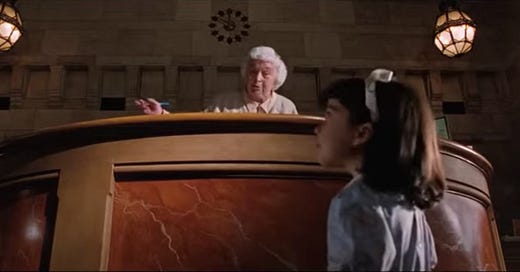Screaming Red Alarm in the Texas Capitol
This one's about public libraries. Here's what to do.
I got notification today that House Bill 3225 will be heard in the Texas House of Representatives State Affairs Committee at 8:00 a.m next Monday, April 14. This is a screaming red alarm for people who care about books, about the freedom to read, or about libraries.
What does the bill do?
First, it forbids municipal public libraries from allowing anyone under 18 to access “sexually explicit” materials (the quotation marks are important).
It also says a public library may not “curate, display, or make available for checkout any sexually explicit material in any minor ’s section of the library.”
The bill also uses an exceptionally broad definition of “sexually explicit.” Whereas other laws passed or proposed in Texas, like 2023’s HB900, have required passages to be “patently offensive” in order to be defined as sexually explicit, under HB3225, books merely need to include an image or language that “describes, depicts, or portrays sexual conduct, as defined by Section 43.25, Penal Code.”1
That means two things: First, that libraries would have to restrict anyone under 18 to children’s/teen/YA sections—they could not be allowed into the library’s sections for the general (adult) public, where they might encounter “sexually explicit” books.2 Second, it would restrict the books that can be made available in those children’s/teen/YA sections. No sex-ed books, no descriptions of “sexual contact” in YA novels meant for older teens. Art books would be at risk, as would innocent books like Eric Carle’s Draw Me a Star and Maurice Sendak’s In the Night Kitchen.
What’s wrong with that?
Well, have you been to a library lately? Yes, most large libraries have designated children’s and teen sections, but people under 18 aren’t limited to them. Which is as it should be! My daughter is 14, and while she loves YA novels, she has also benefited from reading novels written for adults. And sometimes she needs to venture into the adult sections to do research for a school project or to access reference materials.
Think about the implications. Under HB3225, if a 16-year-old needs to check out The Great Gatsby for her English class, tough luck for her— that book’s in the “adult” section. A 17-year-old stops by the library to check out a Stephen King novel on his way home from work? Not allowed.
It gets worse, though. Small and rural libraries often don’t have the space or ability to completely separate their “adult” and “minor” sections. In Idaho, where similar statutes have been enacted, at least one library has completely barred anyone under 18 from its premises.
Is that what we want? Libraries that are off-limits to children?
What can we do?
This bill already has 49 co-authors in the House. If it passes the House, it is likely to pass the more conservative Senate. So we need to be loud and fight this bill early. That means bombarding the members of the House State Affairs Committee with calls and emails—like now.
We’ll also need a presence at the Capitol on Monday. We need volunteers to testify and tell their stories about what libraries mean to their children, so that we can show committee members how destructive this bill would be to our communities. And we need you to spread the word about this bad, dangerous, dumb bill.
And follow Texas Freedom to Read Project on Instagram and BlueSky, too! We’ll have more specific actions you can take, scripts you can use, and updates on this and other anti-book bills.
Before you go:
The Book-Loving Texan’s Guide to the May School Board Elections is live! It’s your guide for keeping book-banners and extremists off of your local school board. I launched with ratings and info for races in 10 districts, and I’ll add races and update all the way until election day. Check it out! And if you appreciate my work, please consider becoming a paid subscriber.
The penal code statute referenced is just as broad. It defines sexual conduct as “sexual contact, actual or simulated sexual intercourse, deviate sexual intercourse, sexual bestiality, masturbation, sado-masochistic abuse, or lewd exhibition of the genitals, the anus, or any portion of the female breast below the top of the areola.”
No, it doesn’t define what “sexual contact” means—does kissing count? Petting?
The bill defines “access” as “the ability to check out “be provided a copy” of a book in a either a physical or electronic format. It’s not totally clear to me whether just browsing shelves counts as access or not. But even if not, in order to comply with the law, libraries would have to audit their entire collections for any possible book with any possible description of sexual contact and flag those books as off-limits for checkout by anyone under 18. Which would be a massive undertaking. Practically speaking, the only way a library could comply with this law is to segregate its adult and “minors” sections.






Anyone genuinely concerned about censorship should check out ScreenItFirst.com — a humble project born from the idea that it takes a village to raise a reader. It’s not about banning books. It’s about giving everyday people a place to share direct snapshots from books so others can decide for themselves. If a story doesn’t align with your family’s values, you can skip it, save time, and help preserve innocence for the next family too. #preserveinnocence